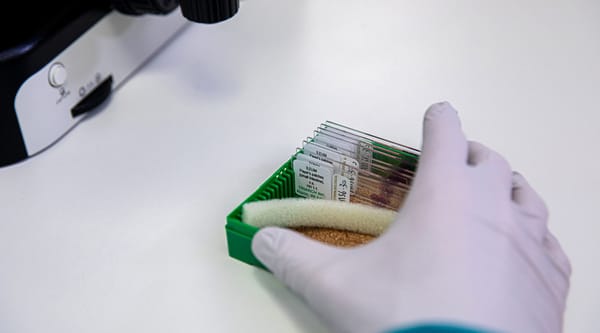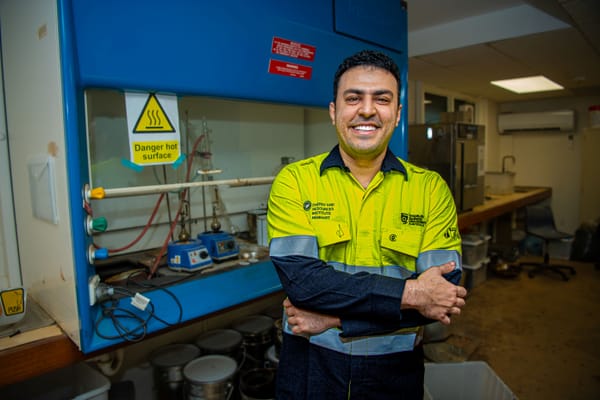Trial increases survival rates for mesothelioma patients
A breakthrough clinical trial has found that combining a new drug with chemotherapy treatment improved survival rates of malignant mesothelioma patients.

First published by The University of Western Australia
A breakthrough clinical trial has found that combining a new drug with chemotherapy treatment improved survival rates of malignant mesothelioma patients.
The study, published in JAMA Oncology, was led by Queen Mary University of London and included research by The University of Western Australia.
Co-author Professor Anna Nowak, Deputy Vice-Chancellor (Research) from UWA’s Medical School, said results of the trial showed promising breakthrough treatment for malignant pleural mesothelioma.

The ATOMIC-meso trial, led by Queen Mary's Professor Peter Szlosarek, involved a randomised placebo-controlled study of 249 patients with the most difficult to treat subtype of malignant mesothelioma, including people from Western Australia.
“This is a rare and often rapidly fatal form of cancer that affects the lining of the lungs and is associated with exposure to asbestos,” Professor Nowak said.
“It’s usually treated with immunotherapy or with chemotherapy drugs, but these are seldom able to halt the progression of the disease.”
The trial found that a treatment – which combines a new drug with traditional chemotherapy – increased the median survival of participants by 1.6 months and quadrupled the survival at 36 months, compared to patients who had a placebo and chemotherapy.
Professor Nowak, who has longstanding research and clinical interests in malignant mesothelioma, said the findings were significant as this type of cancer had one of the lowest five-year survival rates and the drug tested has a new mechanism of action.
“This innovative approach marks the first successful use of a metabolism-based treatment for mesothelioma,” she said.
The premise of the new drug (ADI-PEG20) is simple; it starves the tumour by cutting off its food supply.
“All cells need nutrients to grow and multiply, including amino acids like arginine,” Professor Nowak said. “The news drug works by depleting arginine levels in the bloodstream.”
Further studies are planned to assess the new drug in patients who have malignant pleural mesothelioma and small cell lung cancer — another aggressive lung cancer that is dependent on arginine — as well as a treatment of other types of cancer.
Media references
Annelies Gartner (UWA PR & Media Adviser) 08 6488 6876




